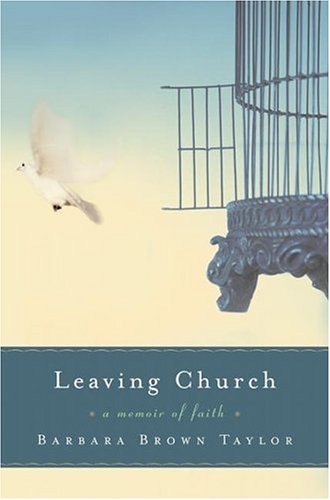 Leaving Church: a memoir of faith
Leaving Church: a memoir of faith
by Barbara Brown
Harper Collins (ISBN 0060771747)
I promised
myself that I would blog more of the books I read - so easy just to put them
down and read the next one. Over the summer I've read a pile of books, some for
work, some for review, and some just for ME! One that I read purely for my own
interest was
One
of the reasons I love this book is because it traces the ambivalence that any
Priest worth her (or his) salt is bound to live with - loving God, loving the
Church and yet being painfully aware that commitment to Church brings as many
constraints as it does freedoms, as many handicaps as privileges. She puts her
finger on the tension between living out what you believe you were called FOR,
and living within the expectations that others have of a priest (almost
invariably not the same thing!) To be a priest with any authenticity you have
to be fully human, and yet very often it is the Church community that works
against that necessity. Sometimes people will not accept ministry if you are
not a priest, and yet they won't accept your humanity if you are.
The title,
"leaving" might just as easily be read as "finding" - it's
not a negative account at all, more an account of how, in order to continue a
journey of faith and simply of human life, the season of ordained ministry had
to be put to one side. One of the reasons I like the book so much is that -
unlike so much other rhetoric that is very simplistically anti-priest and
anti-institution - she treads her way between the real tensions of communities
of faith and their leaders with real insight, and manages to illustrate how we
are called first to be human, and only then to be ministers. She doesn't leave
the Church because she doesn't believe in it any more, nor because she doesn't
believe in what she has done thus far, nor does she hold the Church in any kind
of contempt. Rather, she simply relates the complex reasons why at certain times
a clear shift in role and direction becomes desirable, and what may be learned
along the way. There are plenty of people who will give a bitter account of why
they left, trashing where they have been before. It's refreshing to read
someone who gives an affectionate and grateful account, despite finding in
necessary to leave all the same.
I
think anyone interested in Church would benefit from reading this - priests and
leaders and ministers of course, but perhaps also those who take different
roles within Christian communities - if we could think together about our
mutual ministries and what our various roles give to the community, perhaps it
would be possible to break down in some places the undesirable divide between
the "professional" and the "rest" and start living as truly
interdependent communities? Either that or I imagine that I and many others
will eventually follow the pattern of life that
Review by Maggi Dawn
With permission: http://maggidawn.typepad.com/maggidawn/
